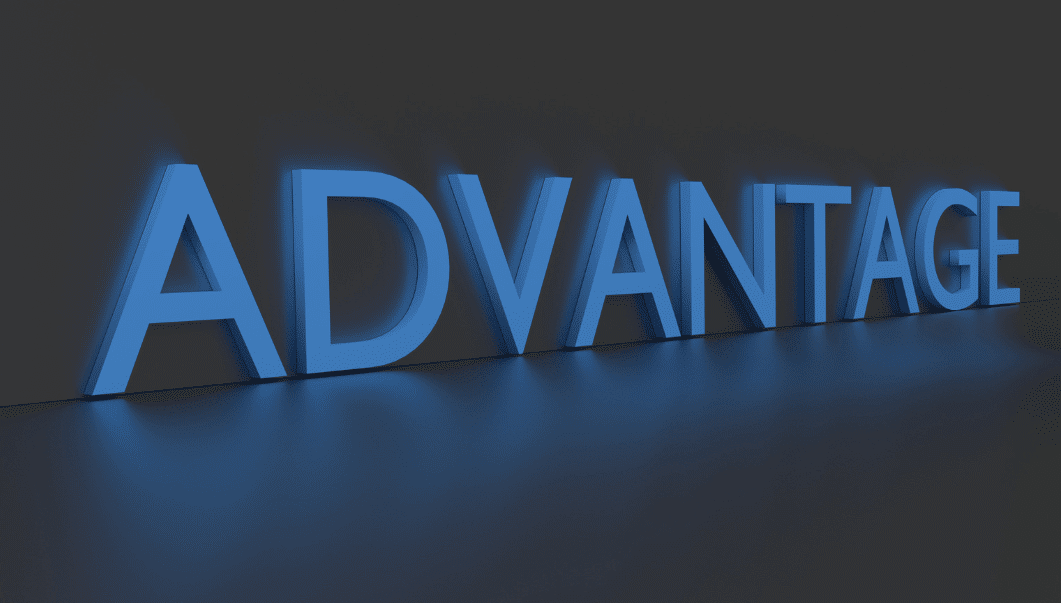
What is a Fixed Deposit Home Rate (FHR)?
If you are considering a home loan in Singapore, you may have encountered the term Fixed Deposit Home Rate (FHR).
FHR is an interest rate linked to a bank’s fixed deposit rates.
Essentially, it is the interest rate a bank offers on their fixed deposit accounts, which is then used as a benchmark for the interest rate on home loans.
Individual banks set the FHR, which can vary across Singapore’s different banks.
For example, DBS Bank offers various FHR options, such as FHR8, FHR9, and FHR18.
These numbers represent the fixed deposit tenure in months.
How does FHR differ from other home loan interest rates?
FHR differs from other home loan interest rates, such as SIBOR (Singapore Interbank Offered Rate) or board rates.
Here are a few key differences:
- FHR is linked to fixed deposit rates: Unlike SIBOR or board rates, which are influenced by market conditions, FHR is directly related to the fixed deposit rates offered by the bank. This means that changes in fixed deposit rates can impact the FHR and subsequently affect your home loan interest rate.
- Stability: FHR tends to be more stable than other home loan interest rates. This is because fixed deposit rates generally fluctuate less than market interest rates.
- Transparency: The interest calculation for FHR is relatively straightforward, as it is based on the bank’s fixed deposit rates. This transparency can make it easier for borrowers to understand and plan their finances.
It’s important to note that FHR is just one option among many when choosing a home loan package.
It’s advisable to compare different loan packages and consult a financial advisor before deciding the best option for your needs.
In conclusion, understanding the Fixed Deposit Home Rate (FHR) concept can help you make informed decisions when selecting a home loan in Singapore.
Key Takeaways
- What is FHR?: FHR is a home loan interest rate in Singapore linked to a bank’s fixed deposit rates.
- FHR Variations: Different banks offer various FHR options, such as FHR8, FHR9, etc., with numbers representing fixed deposit tenures.
- Differences from Other Rates: FHR differs from SIBOR and board rates as it’s linked to fixed deposit rates, offering stability and transparency.
- Choosing the Right Option: FHR is one of many home loan options; compare and consult with a financial advisor for the best choice.
- Understanding Interest Rates: Home loan interest rates, including FHR, play a significant role in your monthly repayments.
- Board Rates and MAS: Board rates, like FHR, are influenced by the Monetary Authority of Singapore (MAS).
- DBS and Fixed Deposit Rates: DBS offers FHR-linked home loans, pegged to their fixed deposit rates, providing stability.
- Comparing with Other Rates: Consider how FHR compares to other benchmark rates when choosing a loan.
- Advantages of FHR: Predictable repayments and potential for lower rates are advantages of choosing FHR.
- Considerations: Assess costs, bank rate revisions, and loan repayment flexibility before opting for FHR.
Understanding the Basics
Exploring the concept of home loan interest rates
When you apply for a home loan in Singapore, one crucial factor to consider is the interest rate.
The interest rate determines the cost of borrowing and plays a significant role in your monthly repayments.
Various home loan interest rates are available, including fixed rate, floating rate, and adjustable rate.
One popular option is the fixed deposit-linked rate, or the Fixed Deposit Home Rate (FHR).
FHR is tied to the bank’s fixed deposit rates and is considered a board rate.
The FHR is revised periodically, usually every three months, based on the bank’s fixed deposit rates and market conditions.
The significance of board rates in Singapore
Board rates are the benchmark rates set by banks that determine the interest rates for various loans, including home loans.
In Singapore, the board rates are influenced by the Monetary Authority of Singapore (MAS), which sets the monetary policies to ensure financial stability and economic growth.
Many banks, including DBS, offer home loans pegged to a board rate.
DBS provides a home loan package known as DBS FHR, which stands for DBS Fixed Deposit Home Rate.
This package allows borrowers to enjoy a home loan interest rate linked to DBS’s fixed deposit rates.
Introduction to DBS and fixed deposit rates
DBS, one of the leading banks in Singapore, offers competitive home loan packages that are linked to fixed deposit rates.
DBS Fixed Deposit Home Rate (FHR) allows borrowers to benefit from the stability of fixed deposit rates while enjoying a competitive interest rate for their home loan.
Market conditions determine the fixed deposit rates offered by DBS and serve as a benchmark for the FHR.
As the fixed deposit rates change, the FHR is revised accordingly, ensuring that borrowers enjoy a fair and transparent interest rate.
By understanding the basics of home loan interest rates, the significance of board rates, and the introduction of DBS and fixed deposit rates, borrowers can make informed decisions when choosing a suitable home loan package that meets their financial needs.
FHR as a Board Rate

FHR vs. other board rates in Singapore
Regarding home loans in Singapore, various options are available, including those with different board rates.
FHR, or Fixed Deposit Home Rate, is a broad rate offered by banks like DBS.
Understanding how FHR compares to other board rates in Singapore is essential.
Board rates, including FHR, are reference rates banks use to determine the interest rate on home loans.
FHR is pegged to the bank’s fixed deposit rates, meaning it fluctuates based on these rates.
Other board rates in Singapore include SIBOR (Singapore Interbank Offered Rate) and SOR (Swap Offer Rate).
Each board rate has its methodology and is influenced by different factors.
Factors to consider when opting for FHR
There are several factors to consider when deciding whether FHR is the right choice for your home loan.
One crucial factor is the rate of the environment.
FHR is linked to the bank’s fixed deposit rates, which may be affected by market conditions.
It is essential to monitor the trends in fixed deposit rates in Singapore, specifically those of DBS or the bank you are considering.
Another factor to consider is the stability of the board rate.
FHR is regarded as a board rate, meaning it can fluctuate over time.
Consider a fixed-rate home loan if you prefer a more predictable interest rate.
Pros and cons of FHR as a home loan interest rate
There are advantages and disadvantages to choosing FHR as your home loan interest rate.
One Advantage is that FHR is derived from the bank’s fixed deposit interest rate, which may be lower than other reference rates.
This could result in a lower interest rate for your home loan.
However, it is essential to note that FHR is a board rate and is subject to market fluctuations.
If interest rates rise, your home loan interest rate may also increase.
It is essential to consider your financial situation and risk tolerance before deciding on FHR as your home loan interest rate.
FHR is a board rate pegged to a bank’s fixed deposit rates.
It is important to compare FHR to other board rates, consider the rate environment, and weigh the pros and cons before making a decision.
Consulting with a financial advisor or mortgage specialist can also provide valuable insights to help you make an informed choice.
How FHR Works

Understanding the link between fixed deposit rates and home loans
In Singapore, many banks offer home loans pegged to a reference rate known as the Fixed Deposit Home Rate (FHR).
This rate is based on the bank’s fixed deposit rates and serves as a benchmark for determining the interest rate on your home loan.
The FHR is typically reviewed periodically, usually every month or quarter.
The FHR-linked home loan is popular because it offers transparency and stability.
Unlike the traditional board rate, which can fluctuate according to market conditions, the FHR is linked directly to the bank’s fixed deposit rates.
This means that your home loan’s interest rate will align with the changes in the bank’s fixed deposit rates.
Exploring the mechanism of FHR adjustments
When the bank adjusts the FHR, it takes into consideration various factors such as the market interest rate environment and the cost of funds.
The adjustments are usually made by a fixed number of basis points (bps), which can be positive or negative.
For example, if 20 bps increases the FHR, the interest rate on your home loan will also increase by the same amount.
It is important to note that the FHR is considered a board rate, which means it is available to all customers.
However, only customers who have fixed deposit accounts with the bank can enjoy the FHR-linked home loan package.
Examples of FHR-linked home loan calculations
Let’s consider an example to understand how the FHR affects your home loan repayment.
Suppose the FHR is 1.5%, and the bank offers a home loan package at FHR + 1%.
If you have a loan of $500,000, the interest rate on your home loan would be 2.5% (1.5% + 1%).
Based on this interest rate, you can calculate your monthly repayment amount using a mortgage calculator or consult your bank for detailed calculations.
By understanding how FHR works and the mechanism of adjustments, you can make informed decisions when choosing a home loan package in Singapore.
It’s essential to compare different rate packages and consider your financial goals and future plans before making a decision.
DBS FHR and its Significance

Overview of DBS FHR and its role in Singapore’s home loan market
DBS FHR, which stands for Fixed Deposit Home Rate, is a unique home loan package offered by DBS Bank in Singapore.
Unlike traditional home loan packages pegged to external benchmark rates, the DBS FHR is pegged to the bank’s fixed deposit rates.
In the Singaporean home loan market, the DBS FHR has gained popularity due to its stability and transparency.
The FHR rates are determined by the bank’s fixed deposit rates, providing borrowers with a predictable interest rate independent of any external factors such as market fluctuations.
DBS FHR as a competitive option for borrowers
For borrowers looking for competitive interest rates, the DBS FHR offers an attractive option.
The rates are reviewed periodically and adjusted based on prevailing market conditions, ensuring borrowers benefit from the most competitive rates.
Additionally, the DBS FHR is compounded based on the Singapore Overnight Rate Average (SORA), which adds to its appeal.
Borrowers can also enjoy the flexibility of choosing their loan tenures, making it a versatile option for different financial needs.
Comparison of DBS FHR with other pegged home loan rates
When comparing DBS FHR with other pegged home loan rates, it is essential to consider the rate indexes used for each package.
DBS FHR offers a transparent and straightforward interest rate easily understood by borrowers.
Furthermore, the interest rate payable on CPF savings (CPF Home Rate) is also considered a board rate and is pegged to the CPF Ordinary Account interest rate.
This makes the DBS FHR an attractive alternative for borrowers who prefer a fixed deposit linked rate.
In conclusion, DBS FHR is a significant Singaporean home loan market option.
Its stability, transparency, and competitive rates make it an attractive choice for borrowers looking for a reliable and predictable home loan package.
Benefits and Considerations

Advantages of choosing a fixed deposit linked rate
When considering a home loan in Singapore, one option you may come across is the Fixed Deposit Home Rate (FHR).
Here are some advantages of choosing a fixed deposit linked rate for your home loan:
Predictability in Loan Repayments: With a fixed deposit linked rate, your interest rate is tied to the bank’s fixed deposit rates.
This means your monthly repayments remain predictable and stable, providing you peace of mind.
Potential for Lower Interest Rates: In some cases, the fixed deposit rate may be lower than other interest rate benchmarks, such as the Singapore Interbank Offered Rate (SIBOR) or the Swap Offer Rate (SOR).
This could result in lower overall interest costs for your home loan.
Flexibility in Loan Tenure: Depending on the bank and their fixed deposit rates, you may have the option to choose a longer loan tenure, which can help in managing your monthly repayments.
Factors to consider before opting for FHR
While a fixed deposit linked rate may offer advantages, it’s essential to consider the following factors before opting for FHR:
Cost of Credit: Understand the total cost of credit over the loan tenure.
While the FHR may offer lower rates initially, it’s essential to consider any potential increases in fixed deposit rates, as this could increase your overall interest costs over time.
Bank’s Rate Revisions: Keep in mind that the bank may revise its fixed deposit rates periodically.
Stay updated on these revisions to assess how they might affect your loan repayments.
Loan Repayment Flexibility: Ensure the loan terms allow flexibility in repayment frequency and partial or complete prepayment options without incurring penalties.
By considering these factors and understanding the advantages of the fixed deposit linked rate, you can make an informed decision when choosing a home loan in Singapore.
Remember to compare different loan options and consult your financial advisor to find the best fit for your financial goals and circumstances.
How FHR Impacts Homeowners and Borrowers in Singapore

Understanding the impact of FHR on monthly mortgage payments
For homeowners and borrowers in Singapore, understanding the impact of the Fixed Deposit Home Rate (FHR) on their monthly mortgage payments is crucial.
FHR is a board rate used by financial institutions like DBS Bank in Singapore to calculate the interest rate for home loans.
It is pegged to the bank’s fixed deposit rates, making it a reliable and transparent option for borrowers.
By choosing a mortgage loan based on FHR, homeowners can benefit from the stability and predictability of the interest rates.
The FHR is typically set at a predetermined percentage above the bank’s fixed deposit rate, which can remain fixed for a certain period.
This ensures borrowers can plan their monthly payments more accurately, knowing that the interest rate will not fluctuate significantly during the fixed period.
Furthermore, borrowers may enjoy lower monthly mortgage payments when the FHR is lower than the prevailing market rates.
This can help homeowners save money, giving them more financial flexibility and potentially enabling them to allocate these excess funds toward other investments or expenses.
Strategies for managing and optimizing home loan interest rates
To manage and optimize home loan interest rates based on FHR, borrowers can consider the following strategies:
- Access to Funds: Some financial institutions offer home loan packages that allow borrowers to partially or fully withdraw their fixed deposits without affecting the interest rate. This gives borrowers access to funds when needed while maintaining the existing FHR-linked interest rate.
- Simplify Fixed Deposit Arrangements: To ensure a more straightforward process, borrowers can simplify their fixed deposit arrangements by consolidating their funds in one account or using a joint statement. This helps minimize complexities and streamlines the documentation required for the home loan application.
- Take Advantage of the Interest Rate Period: When selecting a home loan package based on FHR, borrowers should consider the duration of the fixed interest rate period. Opting for a more extended period can provide stability and protection against potential rate hikes in the market.
By understanding the impact of FHR on monthly mortgage payments and employing effective strategies for managing and optimizing home loan interest rates, homeowners and borrowers in Singapore can make informed decisions that suit their financial goals and objectives.
Advantages and Considerations of FHR as a Board Rate

Benefits of using FHR as a benchmark for home loan interest rates
If you are considering a home loan in Singapore, you might have come across the term Fixed Deposit Home Rate (FHR).
DBS offers FHR, regarded as a board rate pegged to the bank’s fixed deposit rates.
Here are some benefits of using FHR as a benchmark for your home loan interest rates:
- Idea of the interest rate: With FHR, you have a clear picture of the interest rate for your home loan. This can help you plan your budget and make informed decisions about your financing options.
- Transparent and predictable: FHR is based on the bank’s fixed deposit rates, which are publicly available. This transparency lets you quickly understand how your home loan’s interest rate is determined. It also provides predictability, as changes in the fixed deposit rates would directly affect your home loan interest rate.
Factors to consider before choosing FHR as a board rate
While FHR may have its advantages, there are a few factors to consider before choosing it as a board rate for your home loan:
- Choice during times of low fixed deposit rates: During periods of low fixed deposit rates, the interest paid on your fixed deposit may be lower. This could result in a lower FHR, which means a lower interest rate for your home loan. However, it’s essential to consider if the potential savings outweigh the risks associated with low fixed deposit rates.
- Fluctuations in interest rates: FHR is linked to fixed deposit rates and is subject to fluctuations. This means that your home loan interest rate could change over time. Evaluating your risk tolerance and financial stability is essential to ensure you can handle potential changes in your monthly repayment amount.
By understanding the benefits and considerations of using FHR as a board rate for your home loan, you can make an informed decision that aligns with your financial goals and preferences.
It’s always recommended to consult with a financial advisor or mortgage specialist to evaluate the suitability of FHR for your specific circumstances.
Conclusion
In conclusion, the Fixed Deposit Home Rate (FHR) is a unique and innovative approach to home loan rates in Singapore.
By pegging the interest rate to the prevailing interest rate payable on the CPF Ordinary Account, banks offer customers a transparent and flexible option for their home financing needs.
The FHR provides stability and predictability for home loan customers in a dynamic market environment.
Instead of being at the mercy of fluctuating interest rates, mortgage rate, borrowers can enjoy a fixed rate for a specific period, giving them peace of mind and greater control over their finances.
Additionally, the FHR takes into account the cost to the bank by considering the dollar fixed deposit rates.
This ensures that banks do not incur unnecessary risks when offering home loans to customers.
It also aligns the interests of both the bank and the borrower, fostering a mutually beneficial relationship.
For homeowners, the FHR offers an opportunity to find the best home loan that suits their needs.
By comparing the FHR with other loan options, borrowers can make informed decisions and save money in the long run.
It is important to note that the FHR is fixed for a while.
Just like any other interest rate, it is subject to change as the bank revises its fixed deposit rates or in response to market conditions.
However, the flexibility of the FHR allows borrowers to benefit from rising interest rates while being protected from any sudden spikes.
Overall, the FHR is valuable for those seeking stability and transparency in their home loan.
Whether you are a first-time home buyer or a seasoned property owner, considering a fixed deposit pegged home loan can provide you with the financial security you desire.
So, take the time to explore your options and find the best home loan that suits your needs and goals.
By understanding the intricacies of the FHR and how it compares to other loan options, you can make an informed decision that will benefit you in the long run.
Happy home hunting!
Frequently Asked Questions
What is a fixed deposit home rate?
This means that the interest rate on your home loan will fluctuate based on the changes in the fixed deposit rates.
How is the fixed deposit home rate different from other home loan interest rates?
This means that the interest rate on your home loan can change as the fixed deposit rates change.
What is FHR a board rate?
It is based on the bank’s fixed deposit rates and serves as a reference rate for calculating the interest rate on your loan.
How does the fixed deposit rate affect my home loan interest?
As the fixed deposit rates change, your home loan interest rate will also change.
What is the average fixed deposit rate?
This rate can vary from bank to bank and can change over time.
How often does the fixed deposit rate change?
It is essential to regularly monitor the fixed deposit rates to stay informed about any changes that may affect your home loan interest rate.
Why should I consider a fixed deposit-linked home loan?
Firstly, it offers a transparent and predictable interest rate as it is directly linked to the fixed deposit rates.
Secondly, it can provide flexibility as the interest rate can change based on the prevailing fixed deposit rates.
Lastly, it allows you to benefit from any decrease in the fixed deposit rates, resulting in lower interest payments on your home loan.
What is the best fixed deposit rate home loan in Singapore?
It is recommended to compare different home loan products offered by various banks, considering factors such as interest rates, fees and charges, repayment terms, and customer service.
It is also advisable to seek advice from a mortgage specialist to determine the most suitable home loan for your specific circumstances.
What is the SORA rate, and how does it relate to DBS home loans?
It represents the average interest rate banks lend and borrow funds in the Singapore dollar interbank market.
Some banks offer home loans that are pegged to the SORA rate, meaning that the interest rate on these loans will fluctuate based on changes in the SORA rate.
How do the fixed deposit link rates to the home rate work?
The bank typically adds a spread or margin to the fixed deposit rate to determine your final home loan interest rate.
As the fixed deposit rates change, so will your home loan interest rate.












